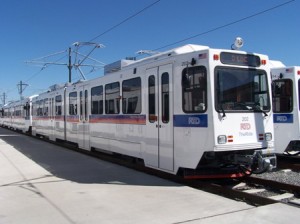More than eighteen years ago, the satirical news site the Onion reported that “98 percent of commuters favor public transit for others” so that everyone else can drive on uncongested roads. Turns out the Onion jokesters aren’t too far off the mark, as in 2016 Los Angeles overwhelming voted for measure M, which will spend $120 billion on transit improvements, yet ridership there has dropped from 600 million trips in 2016 to 550 million annual trips in 2018.
To find out why this is happening, UCLA researcher Michael Manville, an associate professor of urban planning, did a survey of 1,450 Los Angeles-area voters and found out the Onion got it right: very few voters supported the transit tax because they expected to ride transit. Instead, nearly 70 percent of supporters voted for it because they thought it would relieve congestion and reduce air pollution.
“In truth, taming traffic isn’t what transit does best,” observes CityLab in its review of Manville’s study. “Done right, it brings low-cost, efficient mobility to the masses, even when the roads are jammed.” But spending $120 billion on high-cost, low-capacity transit lines is hardly the definition of “done right.”
Transit works best, Manville notes, in cities that are very dense, with narrow streets and limited parking. Yet his survey found that people who support LA transit measures don’t tend to support higher densities or restrictions on the region’s drivability. They want to get to where they are going by car and hope others will ride transit.
Manv![]() ille never really comments on the campaign that led people to believe that transit would relieve congestion, a campaign that used a lot of public funds to essentially lie to people about the value of transit. Metro, the agency that benefits from the measure, now has a report on line crowing about “how to pass a mega-transit measure” that describes all the steps the transit agency took to sell the measure to the public. Of course, government agencies are not allowed to lobby the public, but all of this work was done in the name of “public education.”
ille never really comments on the campaign that led people to believe that transit would relieve congestion, a campaign that used a lot of public funds to essentially lie to people about the value of transit. Metro, the agency that benefits from the measure, now has a report on line crowing about “how to pass a mega-transit measure” that describes all the steps the transit agency took to sell the measure to the public. Of course, government agencies are not allowed to lobby the public, but all of this work was done in the name of “public education.”
Education or not, it’s still lies.
Metro Denver-area residents should take note that the person credited with “leading and implementing the successful Measure M Public Education Program” in Los Angeles has been hired by Denver’s Regional Transportation District (RTD). In 2004, RTD successfully deceived Denver-area voters into thinking that building several new rail lines would relieve congestion, but due to cost overruns it has been unable to complete all of those lines. Instead, RTD is in what is known in the transit industry as the Transit Death Spiral.
So it is not hard to imagine that RTD wants to go back to the voters with another tax increase.
Randal O’Toole is the director of the Independence Institute’s Transportation Policy Center and author of the recent book, Romance of the Rails: Why the Passenger Trains We Love Are Not the Transportation We Need.


